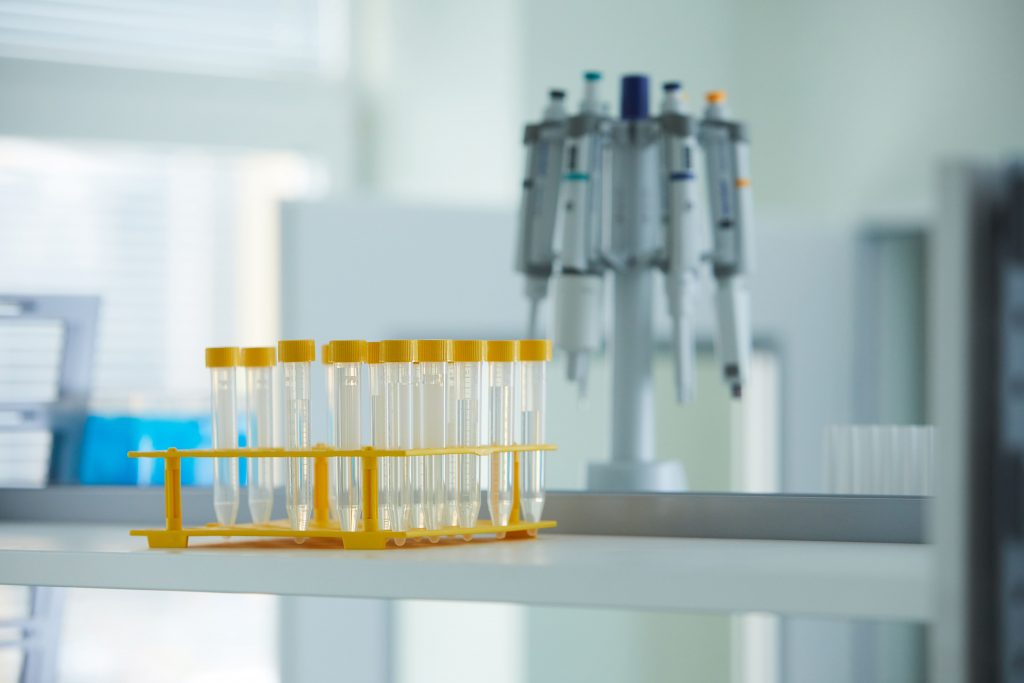News
/
Article
The pandemic did not set back Lithuanian biotechnology sector – last year it grew the fastest

Last year, the Lithuanian biotechnology sector grew by almost 87 percent. The income of companies in this sector amounted close to 2 billion and the value added reached 2.5% of country’s GDP. One employee in the biotechnology sector in 2020 generated 780 thousand EUR revenue, while in 2019 this number amounted to 500 thousand EUR. In total, over the last decade, the revenue of the Lithuanian biotechnology sector has increased nine times – from 226 million EUR in 2010 to almost 2 billion EUR in 2020. Last year, about 2,500 employees worked in the private biotechnology sector alone, Lithuanian Biotechnology Association (LBTA) reports.
“Compared to previous years, this jump in revenue growth is truly impressive. The revenue of the Lithuanian biotechnology sector is growing steadily every year, but in 2019 it exceeded one billion euros for the first time, and last year it reached almost two billion. This confirms that the biotechnology and life sciences sector is one of the fastest growing and most productive sectors of the economy in Lithuania, and the growing number of students and people working in the private sector every year shows the great attractiveness and potential of this field. We can be glad that the COVID-19 pandemic did not harm the growth of the sector, on the contrary – last year many Lithuanian biotechnology companies significantly contributed to the management of the pandemic situation, and some started developing new products, test kits and vaccine components,” says LBTA President Tomas Andrejauskas.
According to dr. Gediminas Pauliukevičius, CEO of Northtown Vilnius, operator of Vilnius City Innovation Industrial Park, the Lithuanian biotechnology and life sciences sector has been distinguished for many years by its productivity and impressive performance results.
“But most importantly, in the pandemic year, life sciences companies, both mature and startups, have clearly demonstrated not only their sustainability, but also a very strong potential to develop new products that compete successfully in the global market for both quality and price. Secondly, what is important to mention is the impressive ability of these companies to adapt to new circumstances at an extraordinary speed, thus opening up new markets and starting to strengthen their potential in new areas. Seeing such performance and trends, there is no doubt that this growth will only be accelerating. And the incentives to increase acceleration, of course, depend both on the strategic actions of the state and on the improvement of everyday conditions for the growth of the life sciences industry,” says CEO of Northtown Vilnius G. Pauliukevičius and is pleased that Vilnius is very aware of the importance of this sector in its economic strategy, therefore in recent years the attention, efforts and initiatives to take into account the expectations of both Lithuanian and foreign life sciences companies and foreign investors for business development in the capital are increasing, networking and intersectoral cooperation important for life sciences industry growth are intensifying.
According to LBTA, the potential of biotechnology development in Lithuania is also shown by human capital. In Lithuania, study programs in this field are offered by as many as six universities. According to the data collected by LBTA from these higher education institutions, 1309 students study medical, industrial, agro and marine biotechnology and related study programs, including 1009 bachelors and 300 master’s students. More than 400 graduates complete these studies each year.
Lithuania has created an excellent infrastructure for life sciences and biotechnology over the last decade. New research centers not only contribute to the development of talent, but also carry out applied research for existing companies, and often startups are born from this research. However, it is quite difficult for them to introduce their technologies or products to global markets, because Lithuania still lacks the incubation capacity for young companies and a strong acceleration program for biotechnology startups.